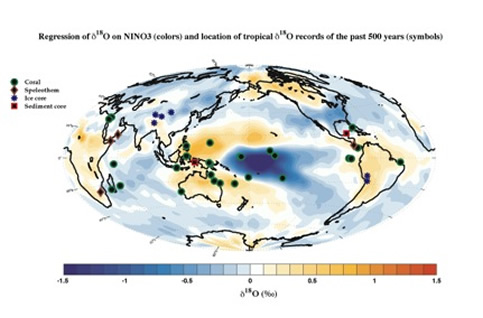

Climate Influences Language Evolution
气候影响语言
The ease with which certain sounds are produced in different climes plays a role in the development of spoken languages. Christopher Intagliata reports
不同气候环境下,发出特定声音的难易程度会有所不同,这对语言的发展产生了重要影响。
撰文 克里斯多夫?因塔利亚塔(Christopher Intagliata)
翻译 王宁
Winter is high time for humidifiers. Because dry air can irritate your throat. But a new study finds that arid conditions might have influenced the development of the very languages that some people speak.
冬天是用加湿器的高峰期,因为干燥的空气会刺激你的喉咙。但是一项新的研究发现干旱的气候会影响一些方言的形成。
"Extensive research on human physiology suggests that really dry air makes it hard for us to use our vocal cords very precisely." Caleb Everett, an anthropological linguistics professor at the University of Miami.
大量的人类生理学研究发现,干燥的气候会使我们无法精确地运用声带。加勒埃弗雷特(Caleb Everett)说。他是迈阿密大学一名人类语言学教授。
He and his colleagues recently investigated that dry-throat-phenomenon in regards to complex tonal languages, like Cantonese [Cantonese language sample], where various combinations of rising and falling tones can actually change the meaning of a word—as opposed to non-tonal languages, like English or Italian. [Italian sample] In the non-tonals, the fundamental meaning is the same, whether I say "word" "word" or "word." (said with different inflections)
他和同事研究发现“干喉咙”现象与复杂声调语言的形成有关,例如广东话,广东话拥有大量的高低声调,且声调不同,意义也不相同。然而像英语和意大利语这样的非声调语言,声调并不改变基础含义。
By mapping the distribution of more than 3,700 tonal and non-tonal languages, Everett and his colleagues found that tonal languages tend to cluster in warm, humid areas. And they're 10 times less prevalent in dry, subfreezing climes, like Siberia, compared with non-tonal languages. The study is in the Proceedings of the National Academy of Sciences. [Caleb Everett et al, Climate, vocal folds, and tonal languages: Connecting the physiological and geographic dots]
通过在地图上示出超过3700种声调和非声调语言的分布,埃弗雷特和他的同事发现,声调语言倾向于聚集在温暖潮湿的区域,而在像西伯利亚这样气候干燥且气温会低于冰点的地区的流行程度则比非声调语言低10倍。
Of course, it’s physically possible to speak a tonal language in a cold place. "Obviously speakers of Cantonese for instance can communicate in Siberia and other dry places." The big picture, Everett says, is that language evolves in relation to where it’s spoken. "It is not impervious to the effects of environment. Just as ecologies impact human behavior and the adaptive processes of human cultures in myriad ways, they seem to also influence the ways in which languages develop."
当然,在寒冷地区说声调语言也是完全有可能的,例如,说广东话的人在西伯利亚和一些其他的干燥地区也可以轻松交流。不过如艾佛雷特所说,大体上讲,语言的形成和区域有关,“它并非不受环境影响,正如各种生态因素会在很多方面影响人类的行为和多种文化的适应过程,现在看来,这些因素似乎也对语言的形成产生着重要影响。
 京公网安备11010502039775号
京公网安备11010502039775号